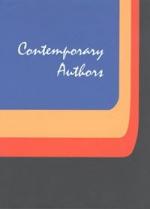|
This section contains 4,043 words (approx. 14 pages at 300 words per page) |

|
SOURCE: Hagen, Patricia L., and Thomas W. Zelman. “‘We Were Never on the Scene of the Crime’: Eavan Boland's Repossession of History.” Twentieth Century Literature 37, no. 4 (winter 1991): 442-53.
In the following essay, Hagen and Zelman assert that Boland aims to “repossess” her place within the Irish literary tradition.
From Yeats and the Celtic Revival onward, Irish poets have recorded, shaped, and criticized their nation's emerging independent identity. In the process, of course, they also attempted to reforge links to the past by creating for Ireland a literary tradition incorporating the myths, folklore, and symbols of a long-suppressed Gaelic heritage. Now, at the end of the twentieth century, the literary tradition wished into existence by Yeats has been expanded, modified, complicated, and virtually completed: it has become, so the argument goes, a “given” in Irish literature, a dead issue. Thus in Modern Irish Poetry, Robert Garratt “assumes a change...
|
This section contains 4,043 words (approx. 14 pages at 300 words per page) |

|


